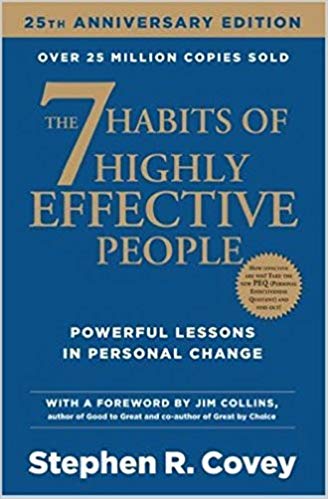

This article is an excerpt from the Shortform summary of "The 7 Habits of Highly Effective People" by Stephen Covey. Shortform has the world's best summaries of books you should be reading.
Like this article? Sign up for a free trial here .
All interactions between people constantly include some sort of negotiation, big or small: Where are we going to dinner? What movie are we going to watch? How much will you sell your product for? How much will you buy it for? How do you reach a resolution? There are six paradigms of human interaction.
The six paradigms of human interaction are win/win, win/lose, lose/win, lose/lose, win, and win/win or no deal. These were identified by Stephen Covey in his book The 7 Habits of Highly Effective People.
While we know that we want to achieve the Win/Win paradigm in most situations, all six paradigms of human interaction have a place in our interactions and daily lives.
What are the Six Paradigms of Human Interaction?
There are six paradigms of human interaction, some of which are much more beneficial and effective than others. As you read about the six paradigms of human interaction, keep in mind that a Win/Win paradigm is most effective and should be strived for, although it may not be right for all situations.
Win/Win: You and I Both End Up Happy
The Win/Win paradigm aims to find a solution that benefits both sides, where everyone is happy with the decision and committed to the plan. People with the Win/Win frame of mind value cooperation over competition and believe that there is plenty — of money, success, happiness, and good fortune — to go around. Of the six paradigms of human interaction, this one is considered the most positive, and helps you focus on synergistic communication.
Reaching a Win/Win resolution can be difficult, and sometimes feels impossible. It often requires you to persist in dialogues longer, even when it feels you’ve reached an impasse. You also must listen carefully and genuinely try to understand the other person’s perspective and goals, then explicitly and respectfully express your own point of view (we’ll go into detail about how to do this in Habit 5). Eventually both parties can reach a solution that neither could have come up with on her own.
Win/Lose: I Beat You
The Win/Lose paradigm makes everything a competition, making it seem that one person’s success must come at the expense of someone else’s success. Leaders with the Win/Lose mentality use an authoritarian style of leadership; people with this mindset tend to use their authority, power, status, or personality to get what they want.
Most people have a deeply embedded Win/Lose mentality that’s taught early on and reinforced through different life experiences. It is likely to be the one of the six paradigms of human interaction that feels the most natural to you.
When a child is compared — explicitly or implicitly — to her sibling or other children, it creates a Win/Lose framework; if you’re being judged and valued based on how you stack up against someone else, then there’s no way both people can win. As children get older, they often look from their parents to their peers for validation, and other children raised with the same scripting are likely to reinforce the Win/Lose paradigm.
In school, grades are another form of external value. Distribution curves and percentiles inherently measure students’ performance against their classmates’, regardless of individual effort or immeasurable strengths and weaknesses: The position of a child in the 90th percentile depends entirely on the 89 percent of her classmates getting lower grades and 10 percent getting higher grades.
Sports is built on the Win/Lose paradigm: You can’t win a game unless the other team loses. And even our system of law is designed to determine who is guilty and who is innocent.
While there are situations when a Win/Lose approach is appropriate, most of life calls for cooperation, not competition.
Lose/Win: You Can Have Your Way and I’ll Deal With It
People with the Lose/Win paradigm are more interested in taking the path of least resistance than getting what they want. They generally want to appease and gain acceptance by the other person, and they tend to be intimidated by others’ strengths and shy away from expressing their own wants and feelings. Leaders with this paradigm of the six paradigms of human interaction have a permissive, indulgent style of leadership.
Win/Lose people enjoy dealing with Lose/Win people because they face no resistance in getting what they want. But both the Win/Lose and Lose/Win paradigms stem from personal weaknesses and insecurities that are being expressed either in a power grab or acquiescence. People who use a Lose/Win or Win/Lose paradigm haven’t made efforts toward synergistic communication or working on their self-paradigms.
People with a Lose/Win mindset lose not only in their interactions, but also in their own well-being: They tend to suppress a lot of feelings, which can fester and bubble up in anger, resentment, cynicism, and psychosomatic illnesses that can especially affect the respiratory, nervous, and circulatory systems.
Lose/Lose: If I Can’t Win, You Won’t Either
When two people with a Win/Lose paradigm get in a standoff, their attitudes can devolve into a vindictive Lose/Lose mentality, meaning that you want the other person to lose so badly that you are willing to take a hit as well. Lose/Lose is the result of getting so focused on the demise of your enemy that you become blind to everything else, including your own well-being. You may also develop a Lose/Lose paradigm if you’re very dependent and have no sense of personal direction, so you think that if you’re unhappy then others should be, too (think: misery loves company).
Ugly divorce battles are often examples of Lose/Lose in the six paradigms of human interaction. In one case, a judge orders a man to sell assets and give half the money to his ex-wife. The man sells his car, worth more than $10,000, for a meager $50 and hands $25 to his ex-wife. He does the same with the rest of the assets, selling them for far less than their true value just so that his wife also gets less money.
Win
A Win paradigm is different than Win/Lose or Win/Win because it only focuses on your own outcome; if you have a Win mentality, you want to get what you want whether the other person wins or loses. The Win paradigm is an every-man-for-himself mentality — you’re concerned with taking care of yourself, and you expect others to do the same for themselves.
Win/Win or No Deal
Sometimes a Win/Win resolution is impossible, and it’s better for the relationship if you walk away from a negotiation altogether. If it’s clear that the two parties aren’t going to see eye to eye, or they have entirely different goals and expectations, it can save a lot of tension and problems in the relationship to forego a deal and keep the relationship healthy and options open to collaborate on something else down the road.
This is where the Win/Win or No Deal paradigm comes in: With this framework, you’re determined to find a solution that benefits both parties and, if that’s impossible, you’re at peace with walking away from the deal, knowing that your goals and values don’t align in this situation.
Having the No Deal option in mind as you go into a negotiation — before either party has set any expectations or created any contracts — prevents you from forcing a deal that will inevitably bring issues later, potentially hurting the relationship. Win/Win or No Deal shows that you value the relationship more than the negotiation. Understanding the Win/Win or no deal paradigm is an important part of the six paradigms of human interaction.
This paradigm can be especially useful in families. For example, if you can’t decide on a movie that everyone will enjoy for family night, skip the movie and do something else; this approach gives you the freedom to find something that everyone will enjoy, rather than sacrificing some people’s enjoyment for the sake of others’.
In business, the Win/Win or No Deal paradigm is most effective at the start of a relationship or enterprise, because No Deal may no longer be an option in an ongoing business relationship. If implemented from the start, this framework can preserve the core relationship, especially in family businesses or businesses started among friends; if they reach a disagreement somewhere along the lines, they can both agree to walk away (or have a buy/sell or other agreement) without hard feelings.
In certain relationships, No Deal is not an option. For example, if you can’t reach an agreement on something, you may not be willing to walk away from your spouse, and certainly not from your child. In those cases, you can find a compromise, which is a lower form of Win/Win.
Choose the Right Paradigm for the Situation
No single one of the six paradigms of human interaction is best for every situation; there will be times when different frameworks are appropriate. The challenge is to have an accurate enough perspective of a situation to determine which paradigm fits best, without just defaulting to what your scripting has ingrained in you.
If you’re playing a sports game, your teammates would probably appreciate you taking on a Win/Lose mentality. In a business setting, competition between regional offices that don’t need to work together can spur sales and motivate employees. A Win/Lose paradigm can be effective as long as the two parties don’t need to cooperate.
There may also be occasions in a relationship when it’s worth taking a Lose/Win approach. If something is really important to the other person and not very important to you, if you feel it would do more good to the relationship to affirm the other person by letting them get the win, or if it simply isn’t worth the time and effort to negotiate, a Lose/Win can be the way to go.
In other situations when you don’t need to be very concerned about how your win affects others, a Win paradigm is appropriate. For example, if your child is in danger, saving your child is your primary focus regardless of just about anything else.
Win/Win is Usually Best for Interdependent Relationships
However, in interdependent relationships — where two people are working together to achieve something — Win/Win is generally the only viable option. If both parties don’t win, they both ultimately lose in the long-term effectiveness of the relationship. Working on this paradigm will also help you develop synergistic communication habits.
Either a Win/Lose or Lose/Win paradigm will bring a short-term win to one party, but the losing side will develop negative feelings that harm the relationship in the long term. In a business dealing, if I get a win in this negotiation, you may walk away and decide you don’t want to work with me in the future. That becomes a loss for me too.
Lose/Lose obviously does nothing to benefit a productive interdependent relationship. And the lack of consideration for the other person in a Win paradigm doesn’t foster the necessary trust and cooperation for an effective interdependent relationship.
The six paradigms of human interaction require careful balance and negotiation. Each one of the paradigms demonstrate that we must take care in relationships and work together to ensure everyone benefits.
———End of Preview———

Like what you just read? Read the rest of the world's best summary of "The 7 Habits of Highly Effective People" at Shortform . Learn the book's critical concepts in 20 minutes or less .
Here's what you'll find in our full The 7 Habits of Highly Effective People summary :
- How to prioritize the hundred tasks you have to focus on the one or two that really matter
- The right way to resolve every disagreement and argument
- How to avoid burning out and succeed over 20+ years






